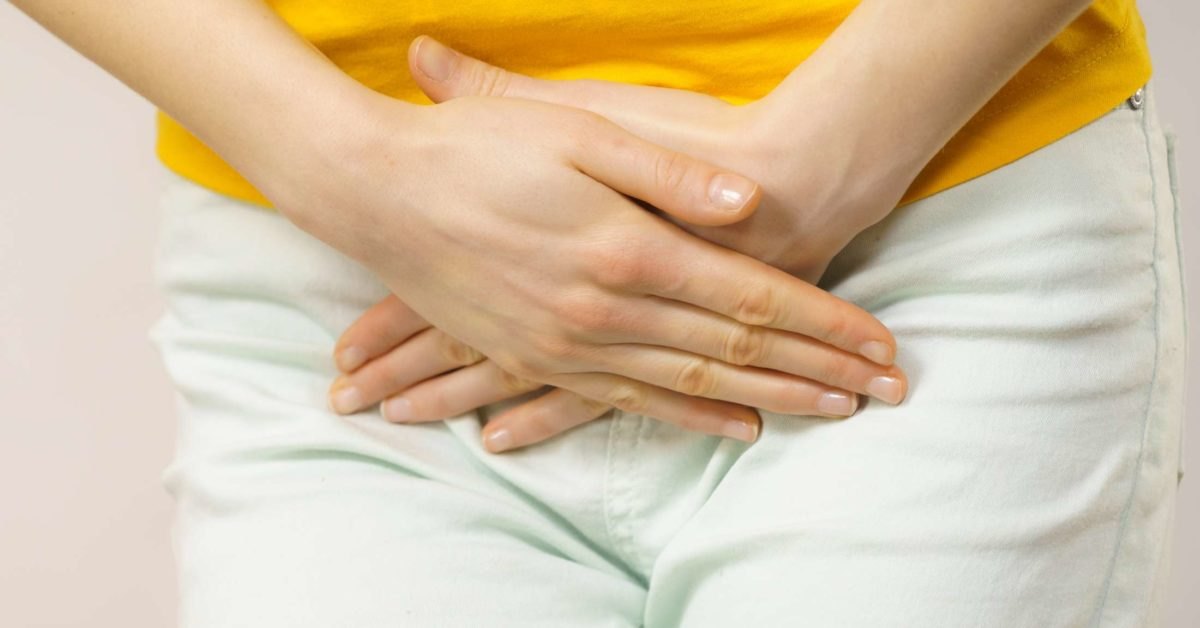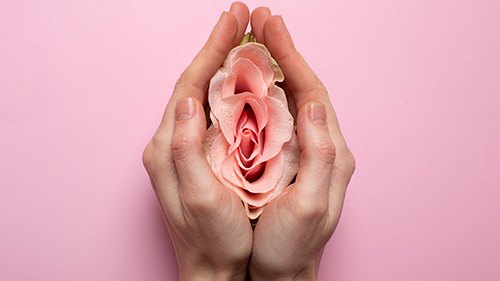What Is Vulvar Cancer?
Vulvar cancer is a less common type of cancer, but one that deserves our gentle attention and awareness. The vulva is the outer part of a woman's genitals, and vulvar cancer happens when cells in this area begin to grow abnormally and form a tumor. Sometimes, the early signs can be easy to miss or might be mistaken for other common skin conditions. These can include persistent itching that just won't go away, a sore or lump, changes in skin color or thickness, or unusual bleeding or discharge. Factors like older age, infection with certain types of Human Papillomavirus (HPV), a history of lichen sclerosus (a skin condition affecting the vulva), or a weakened immune system can sometimes increase the risk.
When we approach this from the perspective of Ayurvedic treatment of vulvar cancer, the ancient Indian system of holistic healing, we look at the body as an interconnected whole. Ayurveda teaches that health is a state of dynamic balance between three fundamental energies, or doshas: Vata (governing movement and dryness), Pitta (related to heat, inflammation, and metabolism), and Kapha (responsible for structure, lubrication, and growth). The health of the skin (Twak) and the delicate tissues of the female reproductive system (Yoni) is profoundly influenced by the harmony of these doshas, the efficiency of our Agni (digestive and metabolic fire), and the clarity of our Srotas (channels that carry nutrients and eliminate waste).
An imbalance, particularly involving an accumulation of Ama (metabolic toxins) due to impaired Agni, or a vitiation of specific doshas affecting the local tissues, can create an environment where abnormal growths, termed Granthi (benign growths/cysts) or Arbuda (malignant tumours) in Ayurvedic texts, may develop. Ayurveda aims to understand the root cause of such imbalances, promoting practices that restore harmony and support the body’s natural defense and healing mechanisms to cultivate Ojas (vitality).
Book Consultation
What Are The Causes Of Vulvar Cancer?
The causes of vulvar cancer have been mentioned below.
- The ayurvedic cancer specialists are aware of the fact that cancer begins when the normal cells undergo division uncontrollably due to certain mutations. The DNA instructs the cell to multiply and the accumulation ultimately leads to formation of lumps or tumors.
- With an increasing age and issues like smoking, the risk of vulvar cancer is increased. However, the average age of diagnosis for vulvar cancer is around 65.
- Individuals who have been exposed to the human papillomavirus (HIV) or have a weaker immune system are more likely to develop vulvar cancer. Low immunity may be caused by therapies such as organ transplants or illnesses such as HIV.
- Some of the precancerous conditions like vulvar intraepithelial neoplasia also increase the risk of developing vulvar cancer. The doctor may remove the area of abnormal cells to treat the condition.
- A number of skin diseases, such as lichen sclerosus, raise the risk of developing vulvar cancer. The vulcar skin gets thin and irritating in this disease.
Types of Vulvar Cancer
The types of vulvar cancer have been listed below.
- Vulvar Melanoma
The vulvar melanoma occurs in the pigment producing cells of the vulva found in its skin.
- Vulvar squamous cell carcinoma
As the name suggests, the tumor develops in the flat and thin squamous cells of the vulva.
- Verrucous carcinoma
It is a sub-type of squamous cell carcinoma that looks like a wart.
- Sarcoma
It is the cancer of connective tissue occurring beneath the skin.
- Adenocarcinoma This type of vulvar carcinoma begins in vulvar sweat glands or Bartholin’s glands. It is usually observed on the sides of the vaginal opening.
Based on the type, you ayurvedic cancer treatment management plan is designed by the professionals.
Signs and Symptoms of Vulvar Cancer
If you tend to experience any of the following, do get in touch with the ayurvedic cancer doctors.
- Unavoidable itching
- Changes in skin color and thickening
- Pain and tenderness
- Bleeding not related to menstruation
- Ulcers, wart like bumps, or lumps
- Pelvic pain while urinating or having sexual intercourse
How Ayurveda Diagnoses and Treats Vulvar Cancer?
Vulvar cancer, in the context of Ayurveda, is considered a multi-factorial disease, usually associated with Pitta and/or Kapha dosha imbalances. Like other parts of the reproductive system, the vulva is very sensitive to both physical and emotional environments. Pitta, the dosha of fire, has a drying quality, and too much for too long can lead to inflammation and changes in the tissue. When Kapha is dominant, it leads to accumulation in tissues and can cause abnormal proliferation. In Ayurvedic vulvar cancer treatment, we do not limit ourselves to treating the symptoms of imbalance; instead, we dig deeper into how lifestyle, digestion, and stress/stress management, both physical and emotional, play against each other. Dysregulated periods, chronic infections, or a prior history of emotional suppression can sometimes promote vulvar neoplasia.
In Ayurveda, the treatment focuses more on cooling, detoxification, and balancing the system's inflammation. In this regard, Ashoka, Kanchanar Guggulu, and Turmeric are some of the common herbs prescribed to help clear out abnormal growths, relieve inflammation, and nourish the female reproductive organs. Yoni Pichu is a treatment in which medicated oil is applied over the genital area to nourish and heal tissues.
Diet is also very important; light and easy-to-digest foods are recommended to prevent Kapha aggravation and to remove cold, heavy, or oily foodstuffs that can lead to stagnation. We must also stress emotional healing, as stress impedes the body even after it has finished healing, particularly when unresolved grief or fear remains. Integrative Ayurvedic practices, like meditation, gentle yoga, and breathing exercises, are also recommended to pacify the mind of accumulated stressors and restore general balance within the body. The real focus of Ayurveda is not just on shrinking a tumor but on healing the entire human being, body and soul.

Why Choose Karma Ayurveda?
To choose Ayurveda involves dealing with the issues through natural herbs and ointments. Use of techniques like Uttara Basti, Yoni Puran karma, and Ayurveda is an ancient system of medicine that believes in natural ways of healing. It uses medicinal herbs that contain several properties important for boosting the body's immune system and helping people to stay fit.
Consumption of Ayurvedic supplements as directed by the Ayurvedacharyas helps a lot in reducing the symptoms of vulvar cancer.
Bringing to you the most effective therapies available, Karma Ayurveda has been helping patients since long. You can get the appropriate treatment plans, nutrition regimens, and other programmes from the ayurvedic doctors treating vulvar cancer.
- Ayurvedic Solutions
- 100% Natural Treatment
- Qualified Ayurveda practitioners
To choose the best course of cancer treatment, a complete and appropriate examination of the illness is carried out. We offer you top-notch services with the support of Panchakarma therapies, herbal vulvar cancer medications, and professional guidance.
Conclusion
As we bring our conversation to a close, it’s clear that dealing with vulvar cancer is a significant journey, one that calls for strength, comprehensive medical care, and deep self-compassion. While conventional treatments play a critical role in addressing the cancer itself, the ancient wisdom of Ayurvedic vulvar cancer treatment offers a supportive and holistic framework to enhance overall well-being and resilience during this time. Ayurveda’s strength lies in its individualized approach, recognizing that each person's experience and constitution (Prakriti) is unique. The aim is always to restore the natural balance of the doshas and strengthen the body’s innate healing capabilities.
Key to this is supporting the body’s detoxification pathways to eliminate Ama (toxins) and ensuring that Agni (digestive and metabolic fire) is functioning optimally. Panchakarma therapies, which are tailored detoxification procedures, might be recommended by a qualified Ayurvedic practitioner to help cleanse the system. Ahara (diet) becomes a cornerstone of healing, focusing on fresh, whole foods that are easy to digest, pacify any aggravated doshas (often Pitta or Kapha in skin-related or growth-related conditions), and nourish the Dhatus (tissues). Incorporating specific herbs known for their purifying, anti-inflammatory, and immune-supporting properties, such as Neem, Turmeric (Haridra), Manjistha, and Guggulu, can be beneficial for Twak Roga (skin disorders) and in supporting tissue health. Lifestyle adjustments, or Vihara, including stress-management techniques like gentle yoga and meditation, ensuring proper hygiene (Shaucha), and adequate rest, also play a vital role. Ultimately, Ayurveda encourages a path of nurturing and respect for the body, aiming to rebuild Ojas (vital essence) and foster a sense of holistic health and peace throughout the healing process.


